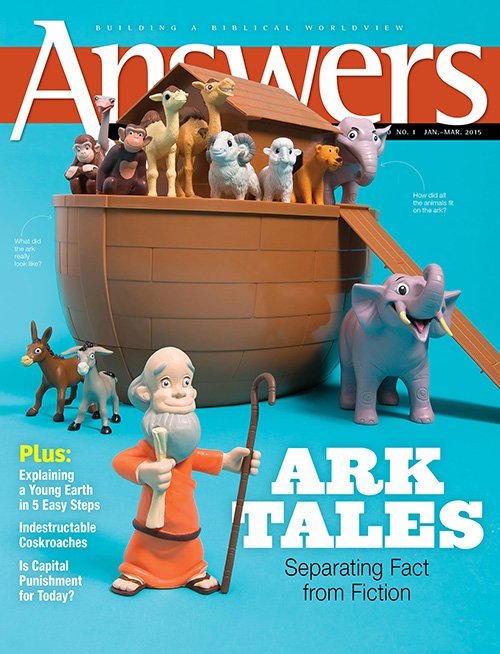One Book Is Sufficient
God did not give us two books, the Bible and nature. Scripture alone is a sufficient source of knowledge about God; nature is not.
Ever hear this? “God gave us two books: the book of Scripture and the book of nature. Both are equally trustworthy.” A prominent progressive creationist puts it this way, “The facts of nature may be likened to a sixty-seventh book of the Bible.”
That is the rationale of many who want to adapt the interpretation of Genesis to prevailing scientific opinion. The argument may seem safe and reasonable. After all, Christian theologians have always recognized both general and special revelation. Scripture itself even highlights the distinction. Psalm 19, the classic passage on the subject, opens with six verses extolling the glory of God revealed in creation. Then it celebrates the excellence of Scripture as God’s ultimate self-revelation.
And, yes, God speaks in both creation and the Bible. “He cannot deny himself” (2 Timothy 2:13), and He never lies (Titus 1:2). So truly no possible contradiction exists between Scripture and natural revelation—as long as both are properly understood.
That’s not all. Romans 1 says emphatically that God has revealed specific truths about Himself through nature. Verse 20 tells us His eternal power and divine nature are clearly seen in the things He has made. So creation is indeed a means of divine revelation.
But there is a major fallacy built into the “two books” argument. It wrongly implies that nature and Scripture have equal power, communicate with equal clarity, and so should be given equal weight. In practice that usually means current scientific opinion becomes the judge of how we read Scripture—almost never the other way around. Some esteemed astrophysicist or paleontologist adds a few billion years to his estimate of the earth’s age, and evangelicals who accept the “two books” argument feel obliged to adapt their interpretations of Genesis.
Even if that were not the practical effect of this teaching, the claim itself is wrong. God did not give us “two books.” He gave us one book, together with an unimaginably grand display of divine glory. Nature is a perpetual exhibition of God’s glory that transcends language and location, but it does not convey explicit truth with the same high-definition clarity and detail as Scripture. God’s written Word is full of clear propositions, precise doctrines, careful explanations, eyewitness testimonies, and definitive precepts. Nature, by contrast, communicates nonverbally (Psalm 19:3). Mankind’s finite state, fallen nature, and fallible senses increase the likelihood that we will wrongly interpret this nonverbal revelation.
Jesus emphatically declared the primacy of special revelation over general revelation when He said, “Heaven and earth will pass away, but My words will by no means pass away” (Luke 21:33). Creation is a product of God’s Word. The two are not equally ultimate. In fact, the primacy of God’s Word is the very starting point of genuine faith: “By faith we understand that the worlds were framed by the word of God” (Hebrews 11:3).
Such faith comes from hearing the Word (Romans 10:17), not from studying nature. Scripture explains creation, not vice versa. Nature drives us to Scripture for a true understanding of God and His ways, and it is the Word of God that gives birth to faith (1 Peter 1:23; Hebrews 4:12). Nature, spectacular as it is, has no such power.
What is the principal difference between the two kinds of revelation? Scripture is a sufficient source of knowledge about God; nature is not. Scripture contains everything necessary for spiritual life and godliness. In fact, the truths most vital to fallen humanity are revealed only in Scripture and cannot possibly be discerned from nature. Those truths include the identity of the one true God, the tri-unity of the Godhead, the deity of Christ, His one sacrifice for sins forever, His exclusivity as the sole mediator between God and man, the doctrine of justification by faith, and a host of related gospel truths. Scripture alone can make us wise unto salvation.
Second Timothy 3:15–17 declares that Scripture is sufficient “to make you wise for salvation . . . that the man of God may be complete, thoroughly equipped for every good work” (emphasis added). That encompasses everything that pertains to life and godliness. Furthermore, 1 Corinthians 4:6 tells us not to go beyond what is written, particularly in the interpretation of Scripture and the formulation of doctrine.
Bottom line: the two-book argument entails a de facto denial of the sufficiency of Scripture. If Scripture cannot be accurately interpreted except through the grid of current scientific opinion, then until today, no one in the history of the church, including Jesus, ever correctly understood even the opening verse—the first and most foundational statement of Scripture.
That means if the two-book theory is true, we might as well reject the perspicuity (clarity) of Scripture as well. So the argument goes too far and is untenable on all counts.
Answers Magazine
January – March 2015
This issue clears up ten common misconceptions about the Flood. Also discover the most profound evidence for creation on the planet.
Browse Issue
Answers in Genesis is an apologetics ministry, dedicated to helping Christians defend their faith and proclaim the good news of Jesus Christ.
- Customer Service 800.778.3390
- Available Monday–Friday | 9 AM–5 PM ET
- © 2026 Answers in Genesis



